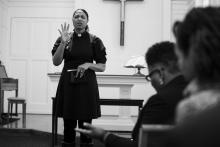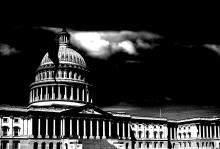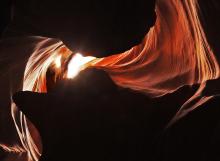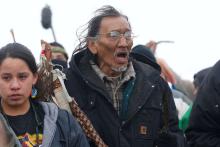Opinion

The Trump administration is pushing to impose work requirements on Americans who rely on the Medicaid program for their health care. Sixteen states have taken up the President’s team on its explicit invitation to place this extra demand on their states’ residents who count on Medicaid for access to their medicines and treatment. There are high-level discussion about applying Medicaid work mandates across the country.
Republicans realize that work requirements can undercut the ACA’s most effective component: the expansion of Medicaid. They are counting on these regulations inflicting their damage outside of congressional and popular scrutiny. In the process, they are promoting false information on what Medicaid work requirements will do.

To claim that this attack was motivated by a singular form of bigotry is false. Such a claim is also violent and contributes to the culture that silences and erases the complicated reality of compounded oppression experienced by black LGBTQ persons every day. Hate is rarely simple and the intersectionality — or dynamic forms of subjugation individuals face because of their marginalized identities — black same-gender loving people face is at work here.

Virtually from the day she assumed office, Rep. Alexandria Ocasio-Cortez (D-N.Y.) and her avowed democratic socialism have been under attack. Much of the condemnation is from the same crowd that so vigorously insists that America is and always has been a “Christian nation.” This is quite ironic, because democratic socialism and the Bible share a strikingly similar vision of what constitutes a fair and just society. Capitalism, however, does not share that vision.

I spent the first 18 years of my life blissfully assuming all Protestant churches allowed women to preach. At my home church, a tiny Presbyterian (USA) congregation in San Antonio, women spoke from the pulpit as often as they brought lukewarm casseroles to Sunday potluck. But when I left home for college, another first-year ambushed me in the dorm kitchen with his mouth full of 1 Timothy, bursting my egalitarian bubble. While I have since memorized the scriptural justifications for my equal existence and participation in the church, a new study by Church Clarity reveals that I am still far from living in a world where all Protestant churches allow women to lead.

When my white wife held her baby boy and girl to her chest for the first time, she cried. Falling from her cheeks onto their heads, her tears baptized them into a world that was confused and colliding and in desperate need of grace.
But she did not cry because she had brown babies.

Thanks be to God! For all the government workers and their families who will, hopefully, soon get their deeply deserved paychecks, we give thanks. For those of us who are constantly on the look out for what’s next on the breaking news horizon, this is a good place to start today: giving thanks to God. Let us first be thankful, then ask what is next.

Kondo focuses not on the aesthetic or the number of things; she instead focuses on the owner’s relationship to the object itself, whether or not it “sparks joy.” She advises, “Take each item in one’s hand and ask: ‘Does this spark joy?’ If it does, keep it. If not, dispose of it.” This relationship to objects is crucial to Kondo’s method and hinges on her Shinto background. Though KonMari is self-help, it’s self-help rooted in a Shinto spirituality.

President Donald Trump began his week tweeting about biblical literacy: "Numerous states introducing Bible Literacy classes, giving students the option of studying the Bible. Starting to make a turn back? Great!" By great, he means great for him — in the way that someone who is desperately parched might call anything wet, “great!” For the vast majority of us — Christian or not — the religious nationalism Trump binge drinks when he’s feeling politically vulnerable is really bad.

Within American culture many have heard the phrase, “as a matter of fact,” utilized in moments of intense debate or discussion. Yet, today the phrase utilized is, “a matter of when?” When will the current trek of looming destruction reach its apex?

Let's ask ourselves: Are we adults doing the best we can to teach young people what they need to know? What daily example are we setting for them in how we act and which leaders we endorse?

As the federal government shutdown enters a painful second month, the human consequences and costs continue to grow. President Trump’s sham “compromise” over the weekend failed to break the impasse as Democrats continue to hold firm to the principled demand that negotiations over border security take place only after the government is reopened. Today, the Senate is set to vote on this “compromise” as well as a bill that would simply reopen the government for a few weeks to allow serious negotiations without the operations of the government held hostage. The second bill is the one we should urge senators to vote for, though the president and Republican Leader Mitch McConnell are urging Republican senators to vote against it as Trump feels its passage would weaken his negotiating position.

It is said that politicians must campaign in poetry and govern in prose. Presidents, perhaps more than any other national figures, must tell the nation a story about itself — of its heroes and villains, of its problems and their causes, of its promise and future.

The former First Lady of the United States, Michelle Obama, recently published Becoming, a remarkable memoir that is the best-selling book of the season. I greatly enjoyed the book, but I admit that I am very troubled by her description of Jeremiah Wright as a wild-eyed, out of touch extremist who is “paranoid” and “careening through callous and inappropriate rage … at white America.” I don’t question the sincerity of her opinion, but as a long-time friend and admirer of Wright, I see him quite differently.

This week, conservative pundit Laura Ingraham announced that President Donald Trump would be hosting the young men from Covington Catholic who attended the March for Life, where they got into an altercation with participants in the Indigenous People’s March. It’s unclear whether the administration has extended an invite, but Trump has taken to Twitter to voice his support for the young men. He’s also made clear over the course of his presidency and campaign his disregard for the voices of Indigenous people — whether by slashing the size of Bears Ears National Monument, greenlighting pipelines that impact Native lands, or using racist and derogatory terms to instigate fights with Sen. Elizabeth Warren over claims to Native heritage.

If it needs doing, will it
if it needs dying, kill it
Don’t spend more time disclaiming than proclaiming
Do the work and let the work speak for itself.
If you can, say yes. If you can’t, say no, and make sure your WHY can stand before God

As technology continues to evolve, it is rapidly outpacing the standard ethical frameworks by which we normally approach new developments. The nucleus of technology and sexuality, which was situated around questions of porn, has been forced to answer new questions, grappling not only with what is right and wrong, but why. With the rise of new, impending sexual technology, the church must learn how to speak into this realm.

The focus of the confrontation between Phillips and Nick Sandmann remained caught in the news, and people immediately raced the well-worn paths to their ideological camps. But missing from the narrative — and certainly from the new counter-narrative — are the Indigenous voices that have been silenced or villainized by the rise and power of white supremacy in America.

God's justice is divine, meant to benefit everyone created in God's divine image. It’s not dictated by man-made laws, branches of government, political parties, lobbyists, or authoritarian officials. It's not biased towards the wealthy or powerful, and cannot be bought by high-priced lawyers. It's not fueled by populist opinions or partisan rage, and isn’t facilitated through broken systems and institutions. Instead, God’s justice is holy and unblemished, eternally seeking to free the enslaved, empower the downtrodden, and bring judgement upon the oppressors.

The longest government shutdown in U.S. history reveals the brokenness of our systems, the danger of a strong man exploiting that brokenness instead of trying to fix it, and the suffering of countless people, always beginning with the most vulnerable. It also painfully shows Washington’s current habit of blaming instead of solving problems, which has left our politics both polarized and paralyzed.

Leaders want to spend billions, not to help people living in desperation, but on the wall. We must ask ourselves, and our elected leaders, what are the true costs when we allow ourselves to be consumed by fear? Are we willing to put the wall ahead of the God of mercy who came to us as a child fleeing violence? Thousands of God’s children remain in the squalor of tent cities in Tijuana and detention centers, unwelcome in Mexico and the United States. Some are returning to violence at home having lost any hope for asylum they are legally entitled to request.